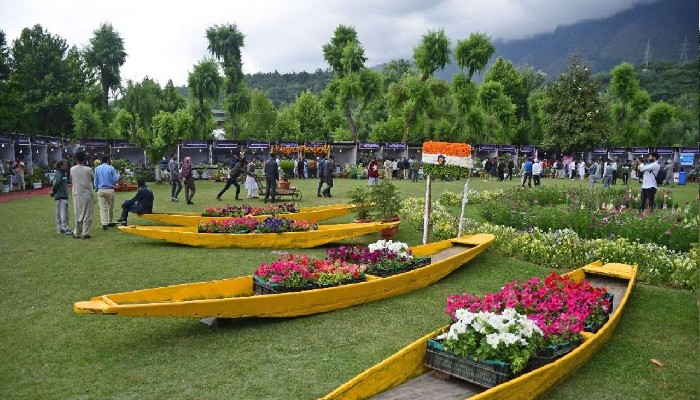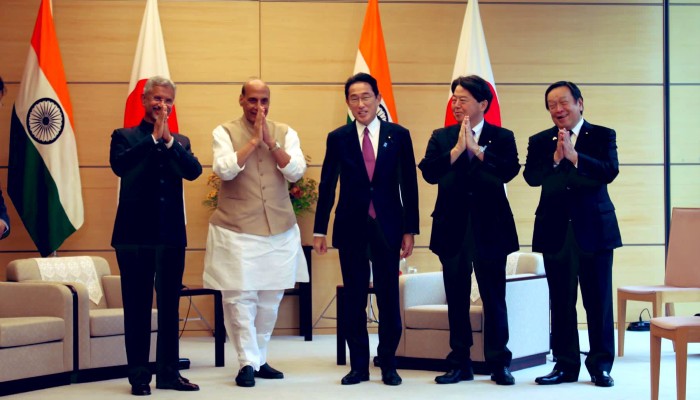The UK-based international NGO has attacked India three years after the abrogation of Article 370, however, the very basis of attack appears to be muddied as J&K is not what Amnesty has projected in its article
In a press statement on three years of abrogation of Article 370, the international non-governmental organisation Amnesty slammed the Indian government for its administrative approach towards Jammu and Kashmir. It said the Indian government has drastically intensified the repression of rights in Jammu and Kashmir in the three years since the change in status.
Obviously, Amnesty International’s statement has tried to ignore the ground realities. Rather in its effort to belittle India’s image, it has taken help of manufactured data and figures which people sitting across Line of Control usually toss around to score brownie points against New Delhi. But facts cannot be altered or struck off from records.
In the last three years, the security situation in Jammu and Kashmir has improved a lot. There has been a 600 percent decline in law-and-order incidents in years since the abrogation of Article 370 in August 2019. As per data compiled by the Ministry of Home Affairs, terror-related incidents have declined by 21 percent. As of July 31, 2022, there are 166 terrorists—86 locals and 80 foreign nationals—active in the region. As many as 44 top commanders were killed in 2021, while more than 20 top terror commanders have been killed to date.
Between August 5, 2026 and August 4, 2019, the Union Territory witnessed 4,894 law and order incidents. After the scrapping of special status to Jammu and Kashmir, the region recorded only 804 such incidents. Since August 5, 2019, Jammu and Kashmir saw 116 civilians’ deaths, while it recorded 126 civilians’ death in terror-related incident in the three years prior to 2019.
Amnesty International talks about repression of local people, however, it has deliberately kept its eyes off changes that have brought to bear on the life of women and people living on the margins of society in Jammu and Kashmir. The government has struck off a law that was used to deprive Kashmiri women of their right to residency if they married non-Kashmiris. Women’s safety in the Union Territory has improved and so has increased their empowerment opportunities in the region.
Women in rural areas are particularly getting attention from the government for their self-development and progress as they are the ones who remain less privileged economically due to lack of gainful employment. Jammu and Kashmir Rural Development Mission (Umeed) is bringing a change in the life of thousands of women in rural areas of the UT. By strengthening grassroots institutions and pushing livelihood interventions, Mission ‘Umeed’ has ensured sustainable income for women in the rural areas of the UT. In urban areas, women by taking financial assistance under Mudra from J&K Bank, are setting up their ventures, suiting their skills, training, aptitude and local conditions. There are a plethora of the Central government schemes for women’s development in the UT. In non-gazetted cadres of the Jammu and Kashmir Police, women have been awarded a 15% quota.
Tribals like Gujjar, Bakerwal, Gaddi, Sippi, Mon, Balti, Beda, Bot, Brokpa, Drokpa, Dard, Shin, Changpa, Garran and Purigpa who, according to last census, constitute over 11% of the total population, are now given their due share in education, employment, and properties. Implementation of the Forest Rights Act (FRA) has ushered a new era of empowerment and prosperity for the UT’s tribals. ‘Mission Youth’ and the tribal department are working together to establish sixteen milk villages to connect at least 2000 youngsters to the dairy sector at the cost of Rs 16 crore.
As per media reports, the government has embarked on the mission of developing transit accommodations at eight places across the UT at an estimated cost of Rs 28 crore for the seasonal migratory population. Tribal Bhavans are being set up in Jammu, Srinagar and Rajouri. As many as 1521 seasonal schools for migratory children, two residential schools on the migratory route are coming up in J&K. Seven new hostels have been established for youth of the tribal community. Media reports suggest there are plans to build 79 additional tribal hostels. This year in June, J&K’s Tribal Affairs Department, IIT Jammu and Rajouri-based Baba Ghulam Shah Badshah University signed an MoU to establish a Chair in both the institutes.
Then the Valmikis living in Jammu and Kashmir were among the worst victims of human rights violations there. While depriving them of the rights of permanent residency, they were denied benefits of central government schemes and policies since the erstwhile state was not issuing SC certificates for them. This anomaly has been removed only after the withdrawal of Article 370.
On the employment front, the Jammu and Kashmir administration has in the last three years recruited nearly 30,000 people whereas 5.2 lakh jobs have been created through various self-employment schemes. Thus, time has come when the UK-based Amnesty International speaks fairly and that too without becoming a tool in the hands of vested interests who target India out of their selfish reasons.











 Contact Us
Contact Us
 Subscribe
Subscribe
 News Letter
News Letter
 Instagram
Instagram Youtube
Youtube